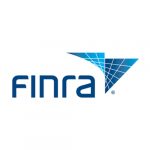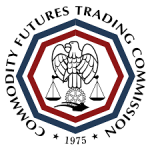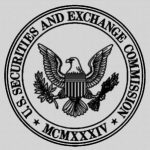It appears that US regulators want to give carrots to encourage self-reporting.

FINRA
On the latest episode of A Few Minutes with FINRA there was a discussion of a recent FINRA initiative for Member Firms to Self-Report 529 Savings Plan Violations.
The initiative was announced in January with a press release which stated in part: “ FINRA today announced via Regulatory Notice 19-04 a self-reporting initiative to promptly compensate harmed investors and promote firms’ compliance with the rules governing the recommendation of 529 savings plans.” FINRA said. “Under the 529 Plan Share Class Initiative (529 Initiative), broker-dealers are encouraged to review their supervisory systems and procedures governing 529 plan share-class recommendations, self-report supervisory violations and provide FINRA with a plan to remediate harmed customers. In response, FINRA’s Department of Enforcement will recommend that FINRA accept a settlement that includes restitution for the impact on affected customers and a censure, but no fine.”
FINRA Executive Vice President of Enforcement Susan Schroeder was on the show and she noted that FINRA was encouraging firms to self-report deficiencies in their processes for compliance. Supervisory systems and procedures.” Schroeder said. A 529 is a tax advantaged savings plan which is designed for long term investing.
“Through the 529 Initiative, FINRA is encouraging firms to assess their supervisory systems and procedures governing 529 plan share-class recommendations, to identify and remediate any defects, and to compensate any investors harmed by supervisory failures.” FINRA stated in the same January 2019 press release.

CFTC
In January 2019, The Industry Spread covered a webinar by the Futures Industry Association entitled “Spoofing, Surveillance, & Supervision.” in which attorneys from the firm Drinker Biddle & Reath LLP noted that the Commodities Futures Trading Commission has been touting its non-prosecutorial agreements to encourage self-reporting by traders against their firms.
“The attorneys also noted that the CFTC has been touting their non-prosecution agreements, as a means of encouraging traders involved in spoofing to come forward and expose their firms. For instance, in July 2017, the CFTC entered into a non-prosecution agreement with three traders from Citigroup Global Markets; while the traders were named, they were spared punishment while the firm was fined $25 million. The message sent appears to perhaps incentivize traders being investigated for spoofing to point at their firm for failing to train and supervise them regarding spoofing.’ Another slide noted.”

SEC
The Securities and Exchange Commission (SEC) has also had long-standing incentives in place for self-reporting.
“The Enforcement Division has signed many agreements under which it recommends to the Commission that a cooperator receive credit for cooperating in investigations or related enforcement actions if the cooperator provides substantial assistance such as full and truthful information and testimony.” The SEC noted on its website.
As recently as December 2018, the SEC put out a press release noting that a fine was eliminated because the firm in question self-reported.
“After its finance department discovered the existence of the sales incentive practices, Hain undertook an internal investigation, and in August 2016, the company self-reported to the SEC its discovery of the sales incentives and announced it was delaying its financial reporting for 2016. Ten months later, Hain reported that financial restatements were not required and simultaneously disclosed material weaknesses in its internal control of financial reporting. As reflected the SEC’s order, Hain has since made organizational changes, including the retention of staff in compliance positions, and has implemented changes to its revenue recognition practices.” The SEC stated in a press release in December.
“Hain’s internal control failures and poor documentation of the sales incentives contributed to the delay in its financial reporting,” said Carolyn Welshhans, Associate Director of the SEC’s Division of Enforcement, said at the time. “But the terms of our final settlement take into account Hain’s timely self-reporting, its cooperation during our investigation, and the significant changes it voluntarily made to its organization and to its revenue recognition practices.”









